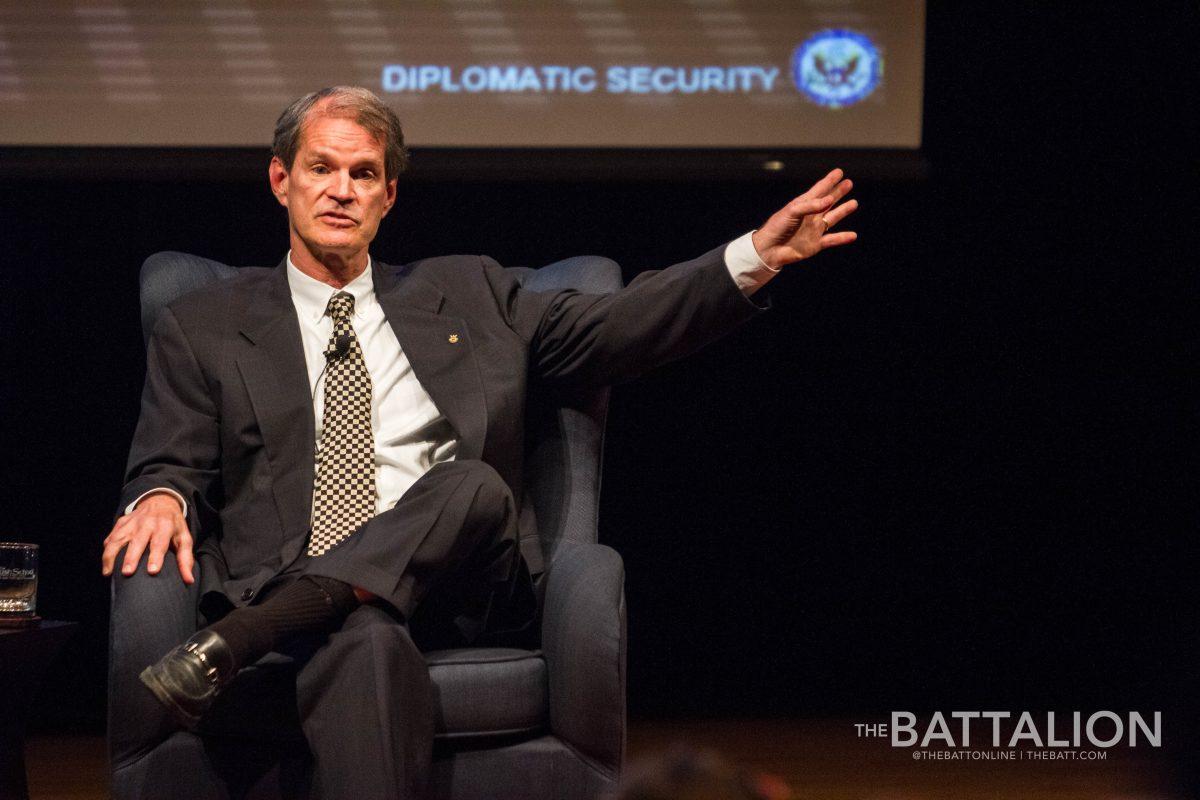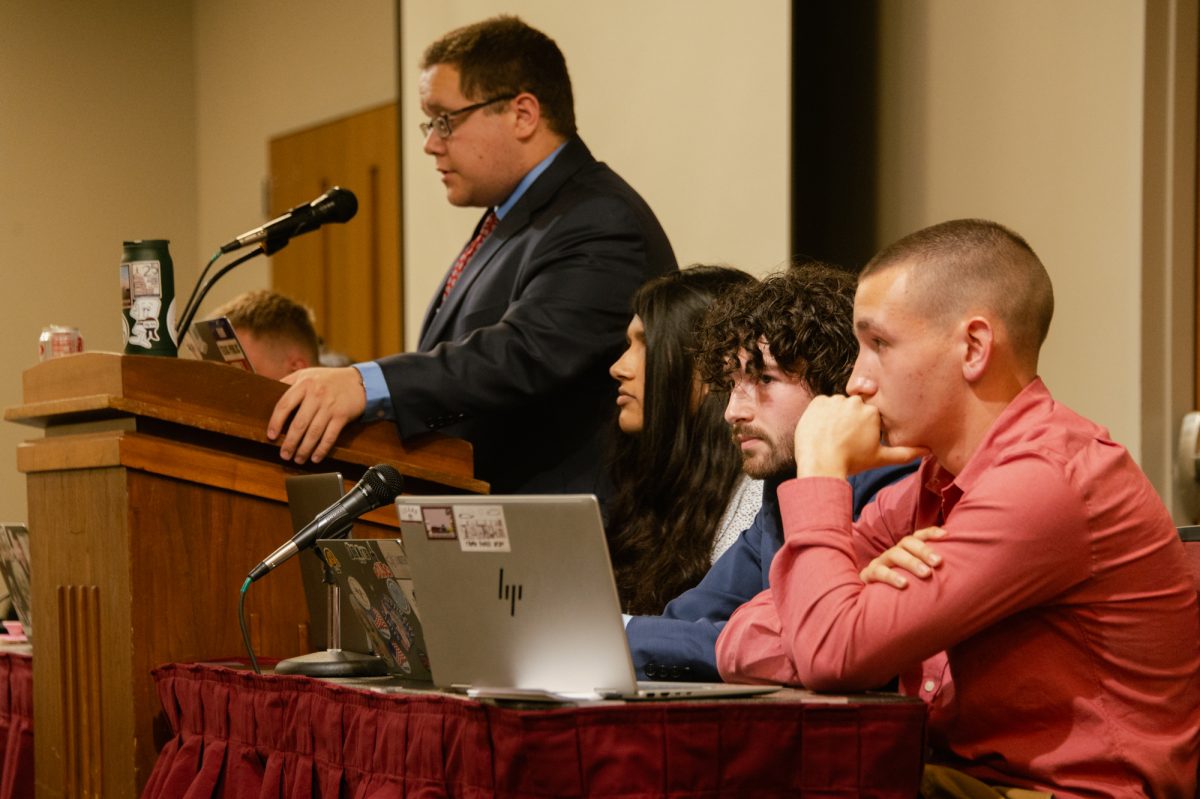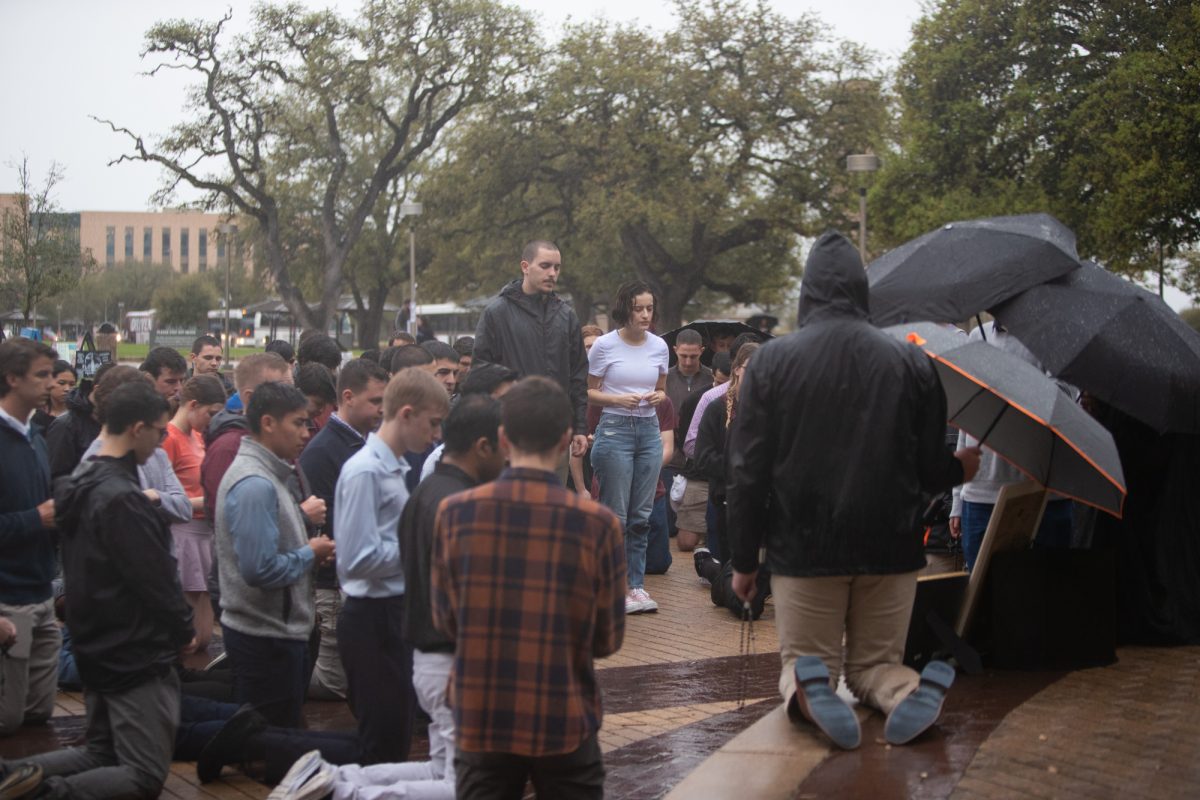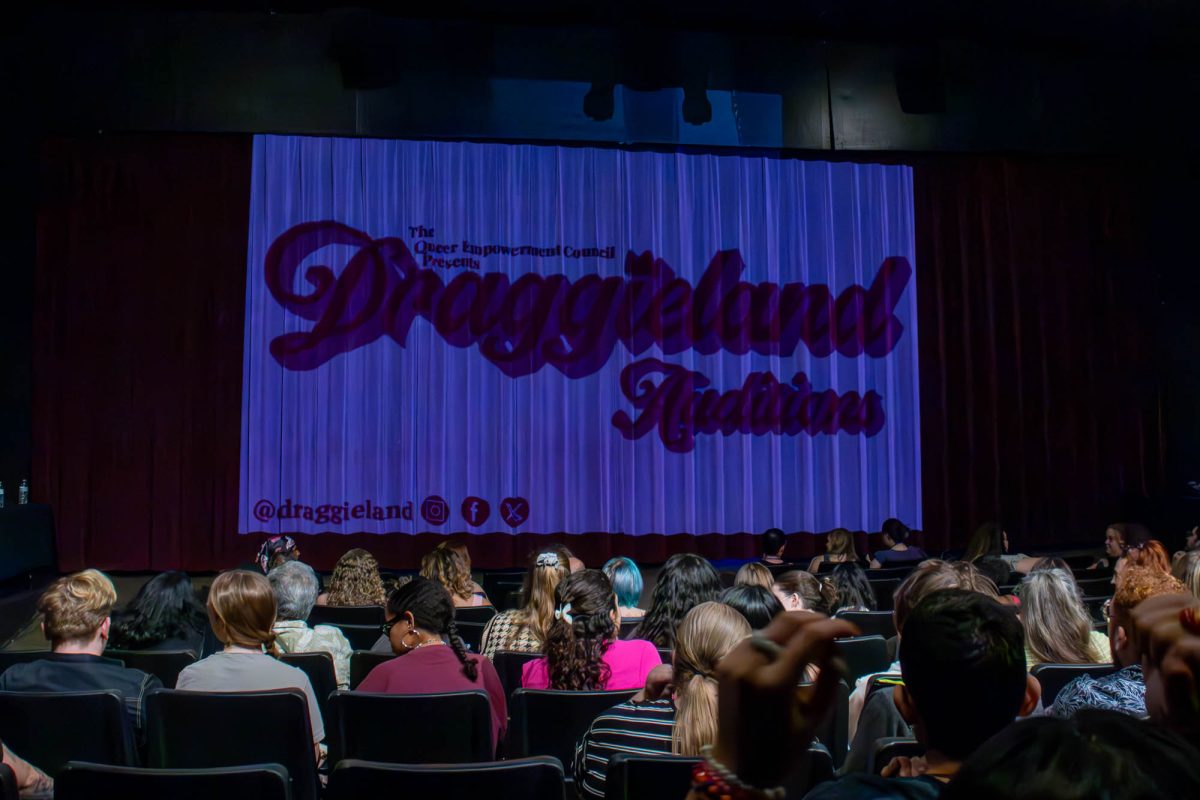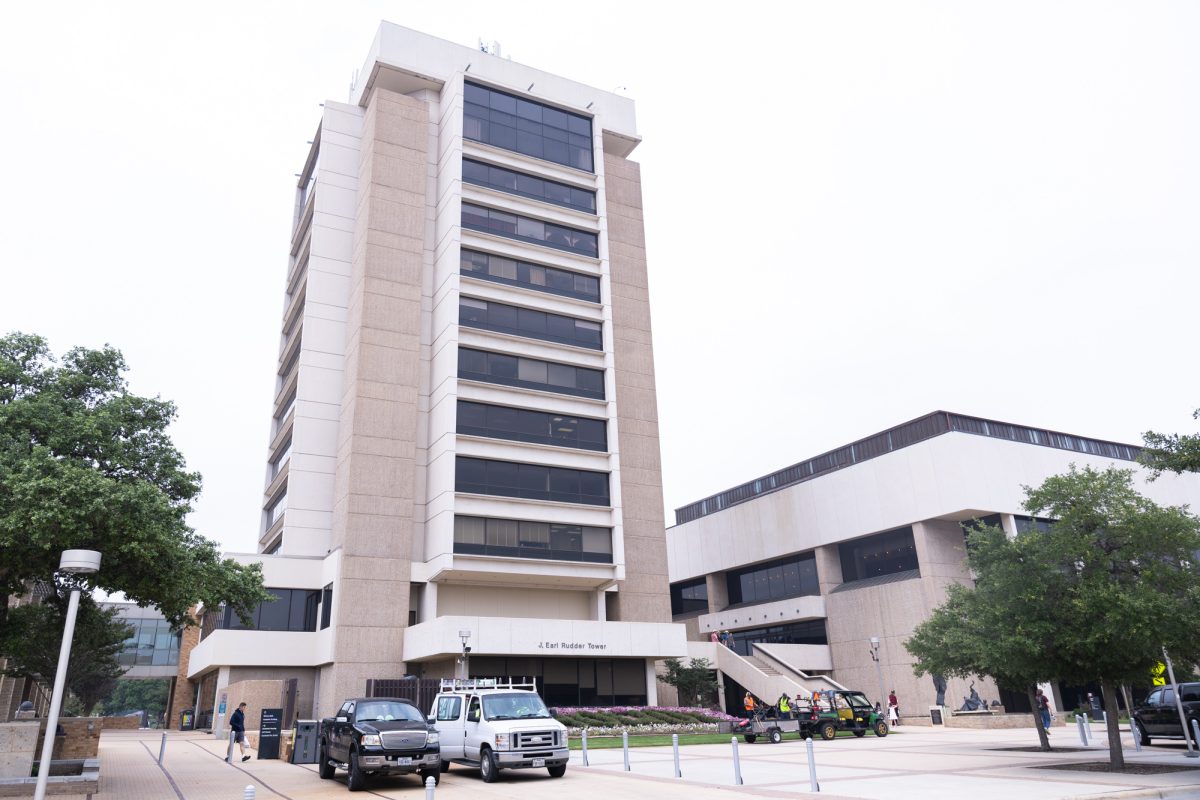Students and other attendees gathered together in the Bush School Monday afternoon to discuss intelligence and its impact on the information-based world during a forum with former Special Agent Robert Booth.
Robert Booth spent nearly 40 years in the government intelligence field, serving in positions such as Deputy Director of the State Department’s Office of Counterintelligence. He also worked in the State Department’s Bureau of Diplomatic Security, Office of Counterintelligence as a special agent, and has written the book “State Department Counterintelligence: Leaks, Spies, and Lies.”
Booth began the lecture by explaining the purpose of intelligence from the perspective of the United States federal government.
“The Supreme Court said the most important mission of the U.S. government is to promote the national security and safety of its citizens,” Booth said.
While the U.S. government has received criticism for the constant monitoring of its citizenry, Booth argued this is necessary to provide the safety that the government offers.
“The government does this by amassing information of the most insignificant things to the most significant things,” Booth said. “They generate and analyse this information, and make recommendations to safeguard American citizens.”
Booth stated the U.S. goes to extreme extents to protect this information from the public, in an attempt to prevent its spread to certain actors.
“Secrets are created every day in Washington D.C,” Booth said. “Certain information should not be revealed to the public domain because it allows our government to be efficient.”
Booth said secrets protect America from being compromised in terms of economics and militarism. Therefore, opposing countries send spies to eliminate this upper hand that the U.S. has gained through its intelligence.
“Foreign countries need to know what our intelligences are, both diplomatically and in terms of military,” Booth said. “They need to know our capabilities.”
Booth said the U.S. utilises counterintelligence to prevent foreign countries from compromising this intelligence.
“Our government does what it needs to do to safeguard its top secrets,” Booth said. “That is why counterintelligence exists, to prevent spies from exploiting its most secret information.”
While spies’ appearance, religion, and ideology can range drastically, they typically come from one of two backgrounds, according to Booth.
“The first kind of spy is a foreign citizen from country X, who is sent to the United States under diplomatic cover or other forms of cover,” Booth said.
Booth said that these individuals acquire information from U.S. officials who share information with spies under the assumption they are diplomats. These actors can be especially dangerous and difficult to detect in the absence of sound counterintelligence practices.
“The second category is a U.S. citizen who has access to classified information, most likely a government employee, who is convinced by a variety of reasons, to betray his or her country,” Booth said.
Booth explained that four motivations could lead to an individual to want to turn against their country by spreading sensitive information.
“The acronym MILE can be used to understand this topic,” said Booth. “M stands for money, as individuals have dispersed information in exchange for finances. Second is I, for ideology, drawing on spies who were empathetic to communism and therefore provided intelligence to their countries. Third, is L, for leaks, seen through things such as WikiLeaks. Motivations to leak typically come from an actor feeling a responsibility to share information with citizens. Lastly is E, for ego. There are cases where people’s personalities are so narcissistic that they can’t help but tell others they have superior information to them.”
According to Booth, counterintelligence officials monitor those they suspect through these four characteristics and seek to analyse changes in their personal lives.
“In counterintelligence investigations, examiners charged with investigating, search for increases in personal bank funds without due reasoning as well as things like public changes in personality,” Booth said. “While these steps aren’t always obvious, they give us a starting point when investigating potential spies.”
Former counterintelligence special agent discusses U.S. threats at Bush School event
March 25, 2019
0
Donate to The Battalion
$2065
$5000
Contributed
Our Goal
Your donation will support the student journalists of Texas A&M University - College Station. Your contribution will allow us to purchase equipment and cover our annual website hosting costs, in addition to paying freelance staffers for their work, travel costs for coverage and more!
More to Discover




